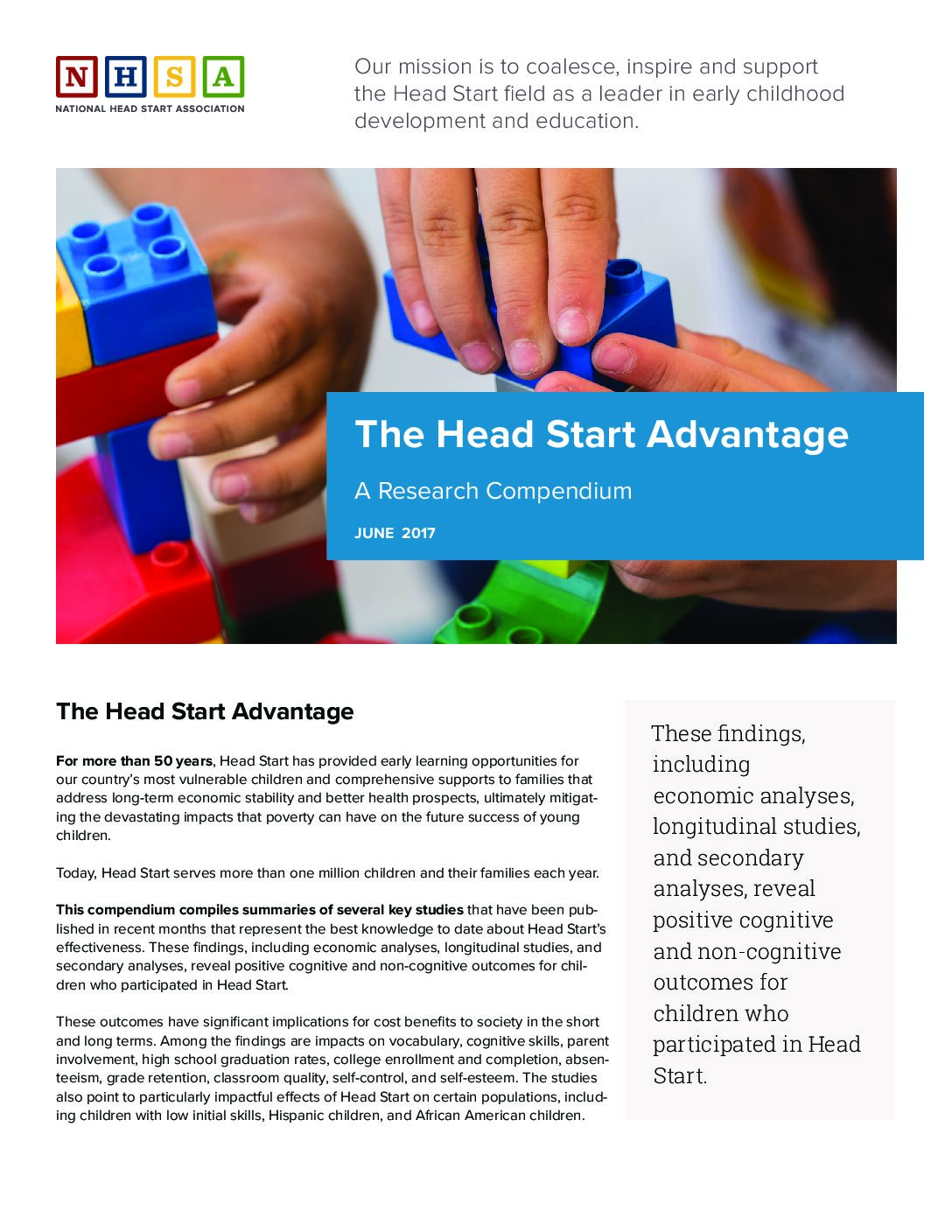This research compendium compiles summaries of several key studies representing the best knowledge to date about Head Start’s effectiveness. These findings, including economic analyses, longitudinal studies, and secondary analyses, reveal positive cognitive and non-cognitive outcomes for children who participated in Head Start. These outcomes have significant implications for cost benefits to society in the short and long terms.
Among the findings are impacts on vocabulary, cognitive skills, parent involvement, high school graduation rates, college enrollment and completion, absenteeism, grade retention, classroom quality, self-control, and self-esteem.
Highlighted Reports and Research
The four reports highlighted in this compendium were published between August and December of 2016 and provide some of the best evidence about the Head Start advantage.
- Revisiting the Impact of Head Start
The Institute for Research on Labor and Employment at the University of California at Berkeley | Claire Montialoux - The Long-Term Impact of the Head Start Program
The Hamilton Project at The Brookings Institution | Lauren Bauer and Diane Whitmore Schanzenbach - The Effects of Tulsa’s CAP Head Start Program on Middle-School Academic Outcomes and Progress
Georgetown University | Deborah Phillips, William Gormley and Sara Anderson - Tracking Quality in Head Start Classrooms: FACES 2006 to FACES 2014
Office of Planning Research and Evaluation | U.S. Department of Health and Human Services

